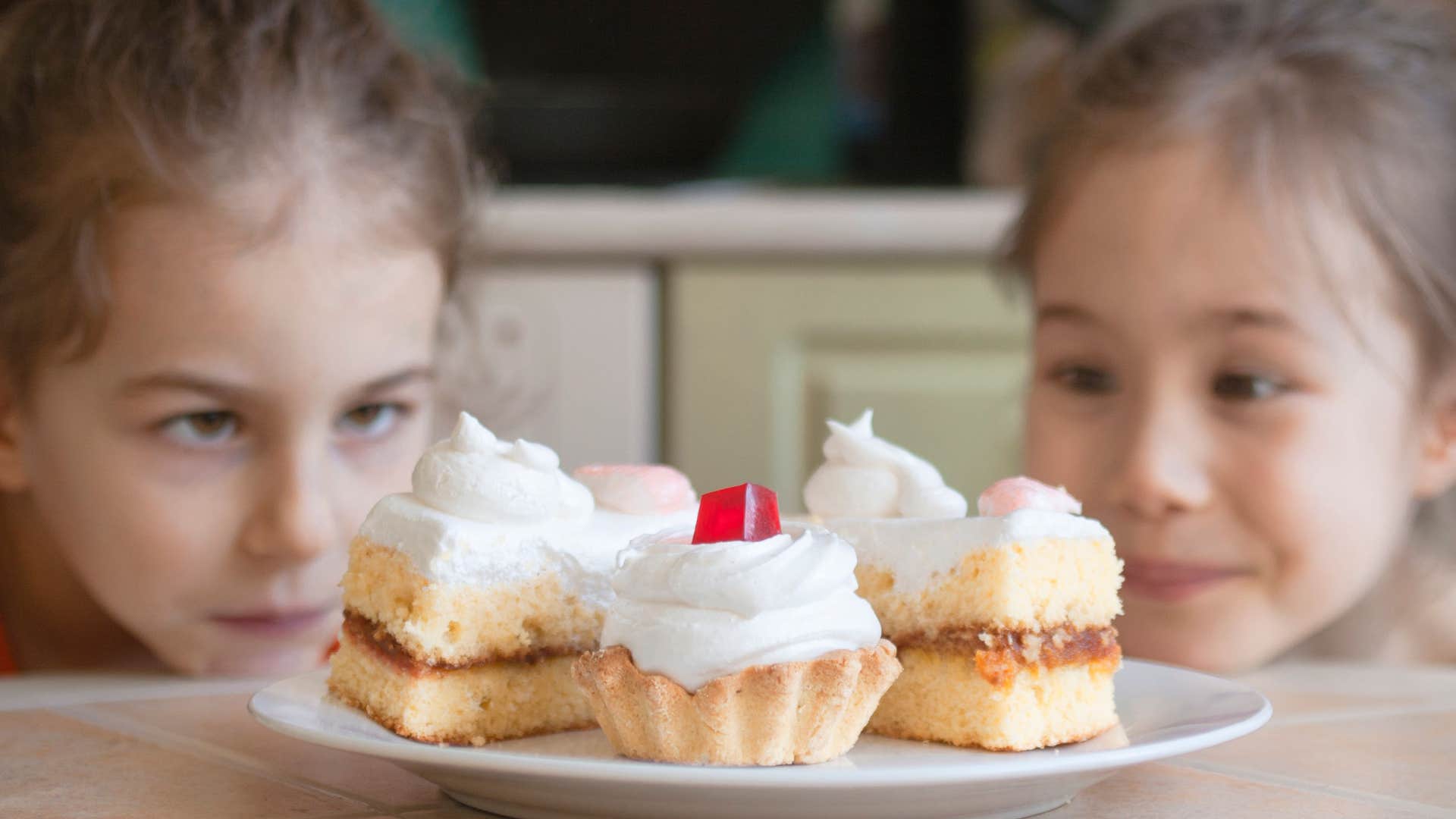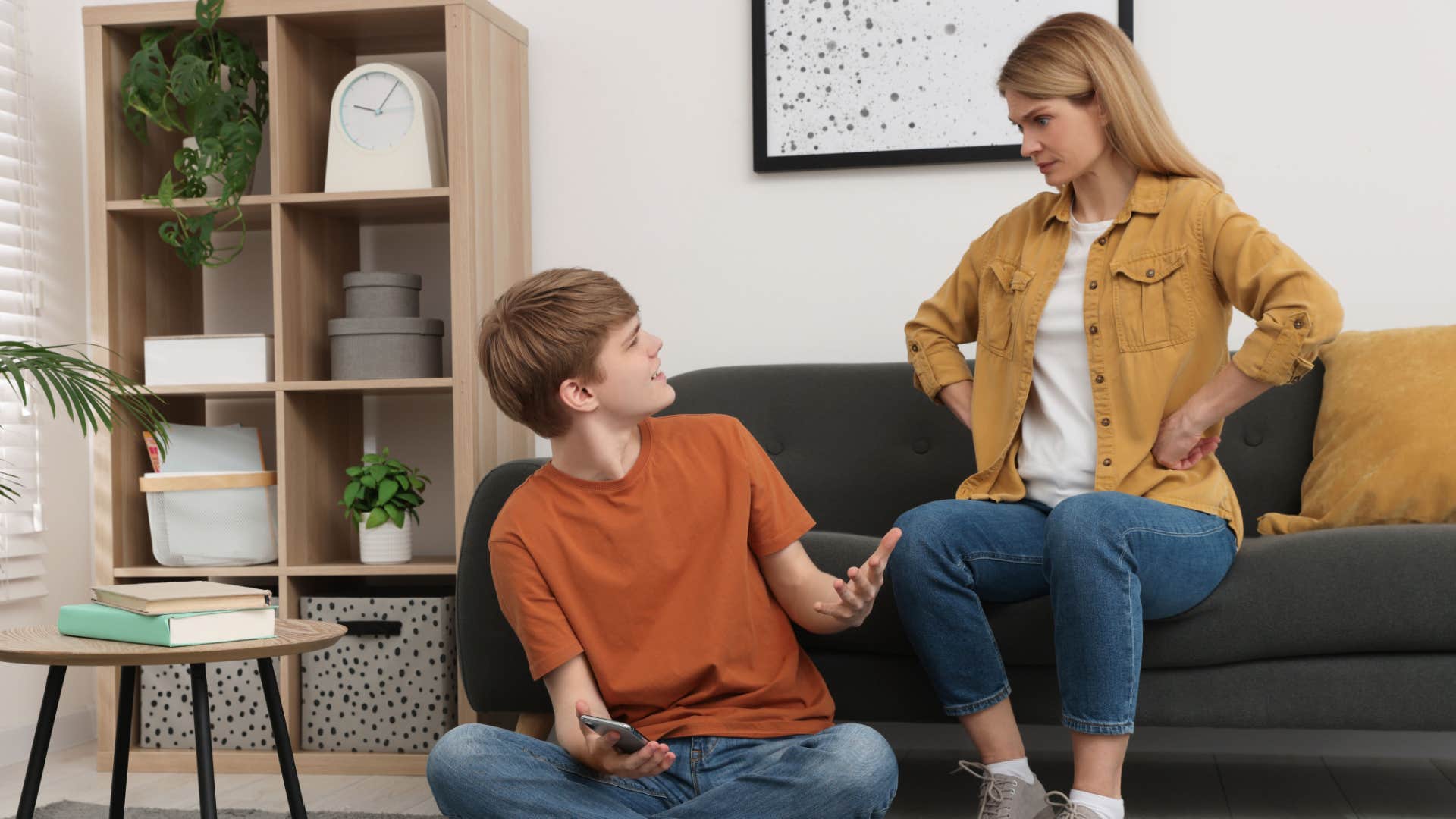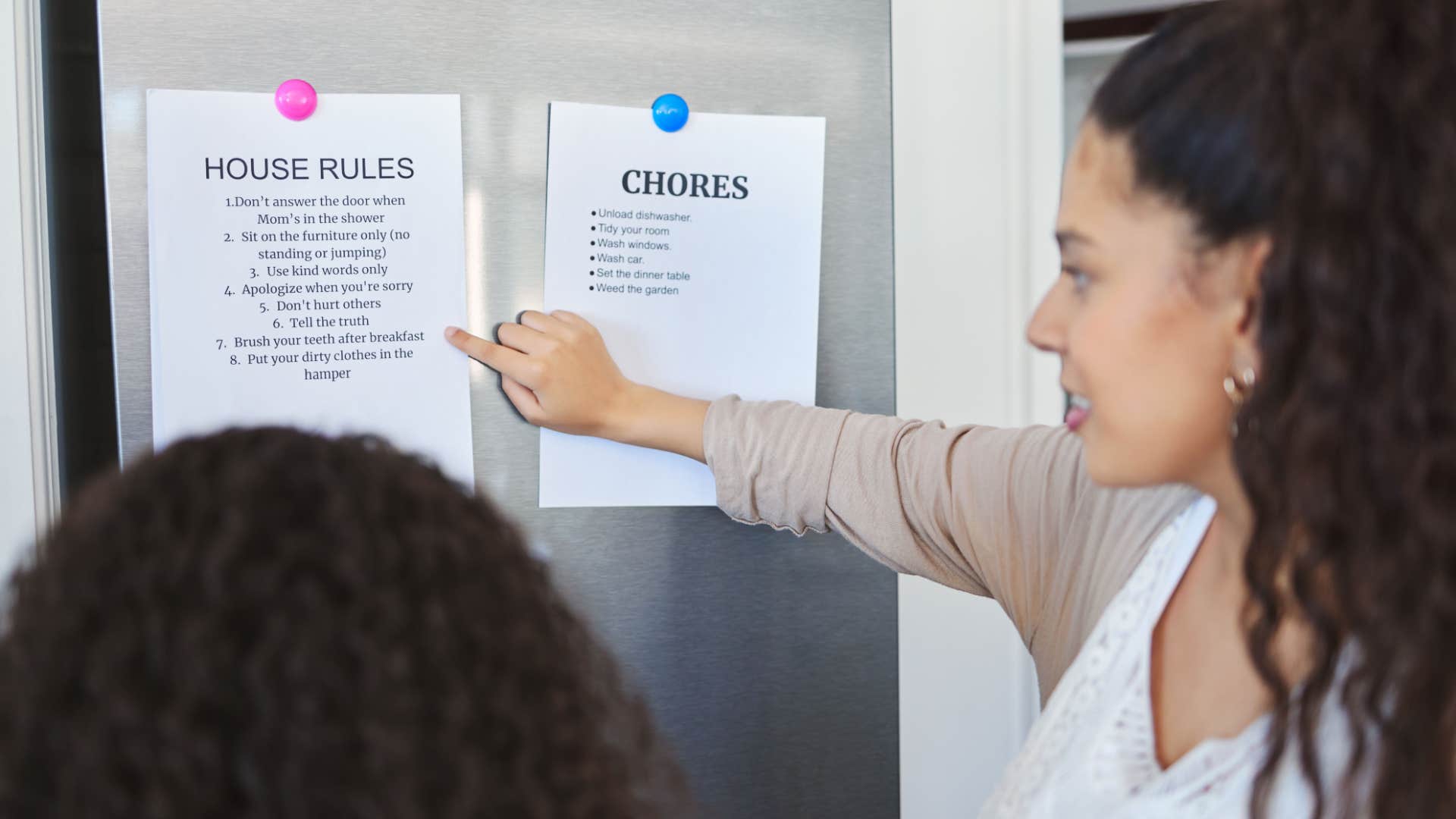11 Things You'll Only Understand About Your Parents When You Become One Yourself
You probably never thought you’d be the one saying no so often, but here you are.
 Krakenimages.com | Shutterstock
Krakenimages.com | Shutterstock Becoming a parent changes the way you see everything, including the people who raised you. After all, there are several things you'll only understand about your parents when you become one yourself. The things that once felt strict suddenly start to make sense when you’re the one juggling your kid's life with your own wellness. Every “no” your parents told you when you were little and every boundary they set starts to look a lot more like care rather than control.
Parenthood has a way of softening the way you remember your upbringing. You begin to notice the small sacrifices and the ways they tried to give you what they never had. These realizations bring understanding and gratitude for everything they did quietly while raising you, hoping one day you’d understand, and that day has approached.
These are 11 things you'll only understand about your parents when you become one yourself
1. How exhausting 'just one more minute' really is
 People Images | Shutterstock
People Images | Shutterstock
It’s one of those things you’ll only understand how tiring it really is once you become a parent yourself. As kids, it always felt like bedtime sparked a second wave of energy. Suddenly, we were ready for pillow fights or another episode on Nickelodeon. As parents, though, “one more minute” means another sleepless night after a long day of house chores and picking up the same toys you put away the night before.
It doesn’t just throw off your sleep schedule. For many parents, those quiet hours after bedtime are the only moments of peace they can get. It’s the time they finally get to unwind and do things for themselves, not for the kids.
2. Why they worried so much
 Nicoleta Ionescu | Shutterstock
Nicoleta Ionescu | Shutterstock
You'll learn to understand why your parents always seemed so stressed out over the tiniest things, especially when you're first learning to become one. Every little thing they do, you start to question if there's a terrible ending to any of it. Suddenly, mundane activities are leading you to overthink, especially when you have your first child.
When you start to worry excessively, it can begin to affect your relationship with your child. One study found that worrying is a natural part of the parent–child relationship, even long after kids grow up. Parents often overthink out of love, but when worry is expressed too often, it can make children feel incapable or controlled, which harms the relationship. The research shows that while most parents worry about their children’s safety and choices, learning to manage that concern is key to maintaining trust and healthy communication.
3. The cost of every little treat
 Anna Shou | Shutterstock
Anna Shou | Shutterstock
You’ll understand the sacrifice your parents made when you finally find yourself in their position, like saying yes to your kid’s request for dessert, even though you already have snacks at home and this week’s budget is stretched thin. Once you’re the one weighing every little expense, you start to see how much those small treats really add up.
It’s never easy to say no to a pleading child, but finding a compromise can make all the difference. Try saying something like, “How about we bake cookies together and add your favorite toppings?” It saves money while creating a moment they’ll actually remember.
4. Why they needed so much quiet time
 Fizkes | Shutterstock
Fizkes | Shutterstock
As kids, we were always nagging our parents in their bedroom with random asks. When you become a parent, you understand why they would get so irritated when you interrupt their quiet time.
Quiet time for parents is more than just lying down to unwind, and it doesn't have to be just for yourself. It can also help your kids' mental health. Quiet time helps them build independence by letting them choose how to spend that time, whether it’s reading or resting quietly beside you.
These calm moments also inspire creativity and teach mindfulness, helping children become more aware of their thoughts and emotions. Even 15 to 20 minutes of quiet time can make a big difference, creating space for both learning and peace in their daily routine.
5. How hard it is to let go
 Vesnaart | Shutterstock
Vesnaart | Shutterstock
Growing up, your parents always seemed to be clinging onto your younger self, but now that you have your own kid, you start to find yourself following those same behaviors. Watching them enter their first classroom in kindergarten and their last in college is bound to stir up emotions, and suddenly, the only thing you can do is hold their hand until they walk through that door.
Letting go can be difficult for parents because it often feels like losing a part of the connection they’ve always had with their child, especially as they start to grow up and don't open up to them as much as they used to. According to Dr. Carl E. Pickhardt, each stage of growing up brings its own kind of loss, and learning to adjust to those changes can be one of the hardest parts of parenting.
6. That they weren’t always right, but they were trying
 New Africa | Shutterstock
New Africa | Shutterstock
Parents are human and bound to make mistakes, especially when they’re figuring things out for the first time. As you experience those same moments yourself, you begin to appreciate how much your parents learned as they went. What once felt frustrating as a child begins to make sense when you realize parenting is mostly trial and error.
All those arguments you had with your parents growing up start to hit differently once you’re older. You begin to feel a sense of empathy for them and realize they didn’t deserve to be yelled at by a teenager who thought they knew everything. Looking back, you see that they were trying their best to guide you, even when you didn’t make it easy for them.
7. Why they snapped over small things
 DimaBerlin | Shutterstock
DimaBerlin | Shutterstock
When you become a parent, you understand that growing up, your mom or dad wasn't just randomly in a bad mood, but something caused them to reach their breaking point. This can happen easily when they feel unappreciated for going to great lengths to make dinner on time.
Sometimes what people call “mom rage” isn’t about anger at all, but it’s the build-up of exhaustion and pressure that finally spills over. When you’re constantly running on little sleep while simultaneously trying to meet everyone’s needs, even small things can set you off. It’s that moment when the constant noise and mess pile up, and you realize you’ve hit your limit. "Mom rage" can affect anyone, even if they've never had anger problems or issues with anxiety.
8. The guilt they carried
 Nicoleta Ionescu | Shutterstock
Nicoleta Ionescu | Shutterstock
You’ll understand the guilt your parents carried when you realize how heavy it feels to constantly wonder if you’re doing right by your kids. You start questioning if their injury at soccer practice was your fault for making them participate in a sport or if their excitement over a friend’s lunch means you’re not doing enough. For parents who tend to overthink, those moments replay endlessly in their minds.
When you become a parent, you learn that guilt doesn’t really go away and it starts to settle in quietly, reminding you that loving someone that deeply means always wanting to do better, even when you’re already giving everything you have.
9. Why they took so many pictures
 Odua Images | Shutterstock
Odua Images | Shutterstock
The moment you reach for your camera to capture your kids doing something simple like coloring or helping you cook, you’re taken back to how irritated you used to feel when your parents did the same thing to you as a kid. You realize they weren’t trying to annoy you by asking for another smile. They just wanted to hold on to those everyday moments before their little ones grew up and left the nest.
Photos are a way to freeze time and hold onto the little moments that seem to pass too quickly. When you take photos of your kids doing everyday things, you’re capturing memories they’ll someday look back on to see how loved and cared for they were. These photos become reminders of connection and their growth, allowing both you and your children to revisit small but meaningful moments that would have faded away if you didn't have the same photo-snapping instincts your parents had.
10. How lonely parenthood can feel
 Prostock Studio | Shutterstock
Prostock Studio | Shutterstock
You’ll understand how lonely your parents felt raising you when you find yourself at home on a Saturday night, folding laundry instead of going out and catching up with your friends or loved ones. Maintaining a social life becomes more challenging once kids enter the picture. That yearly trip with friends or a casual night out suddenly takes a backseat when your mind is occupied with what you need to prep for the week.
Studies show that about a third of parents are experiencing chronic loneliness, so you aren't the only one who feels this way. Parents can feel less lonely by building meaningful connections with people who understand their experiences. You can try joining local or online support groups, or spend more time with other parents at school events.
11. That their rules were really boundaries of love
 People Images | Shutterstock
People Images | Shutterstock
You’ll understand that your parents’ rules were really boundaries of love when you start setting them yourself, whether you hate them or love them. What once felt like strict limits or unfair decisions suddenly makes sense when you’re the one trying to keep your child safe and also teach them the meaning of responsibility.
As teenagers, we felt like every time we were told we couldn’t do something, our parents were just trying to control us. Now we understand that if it weren’t for those limits, we could've easily ended up in situations we weren’t ready for. If we had gone against them (typical teens), we were going to learn those lessons the hard way.
As you get older and step into your parents’ shoes, the things that once felt frustrating and annoying when you were younger start to make a lot more sense. You begin to see the love behind their rules and the exhaustion behind their moods. Parenthood gives you a new kind of empathy and a deeper appreciation for everything your parents did quietly.
Doreen Albuerne is a writer with a bachelor's degree in journalism who covers relationships, mental health, and lifestyle topics.

